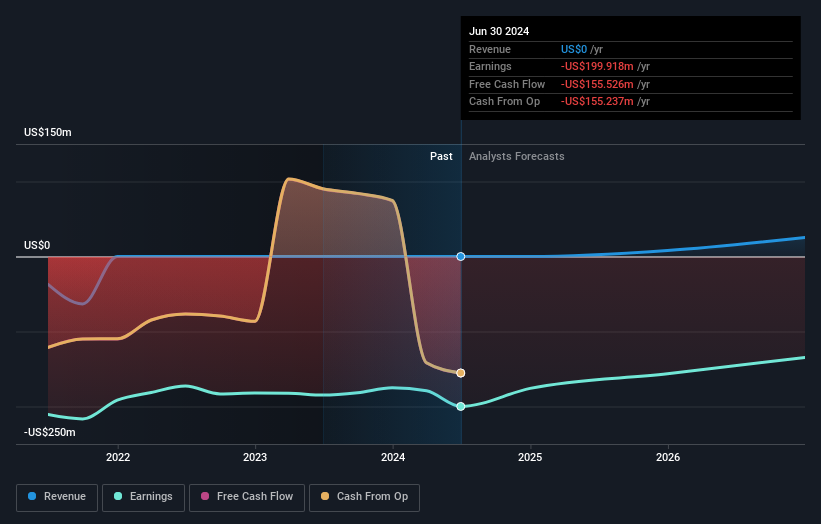- United States
- /
- Pharma
- /
- NasdaqGM:OMER
Omeros Corporation's (NASDAQ:OMER) 14% loss last week hit both individual investors who own 52% as well as institutions

Key Insights
- The considerable ownership by retail investors in Omeros indicates that they collectively have a greater say in management and business strategy
- A total of 25 investors have a majority stake in the company with 44% ownership
- Institutional ownership in Omeros is 43%
A look at the shareholders of Omeros Corporation (NASDAQ:OMER) can tell us which group is most powerful. With 52% stake, retail investors possess the maximum shares in the company. That is, the group stands to benefit the most if the stock rises (or lose the most if there is a downturn).
Following a 14% decrease in the stock price last week, retail investors suffered the most losses, but institutions who own 43% stock also took a hit.
Let's take a closer look to see what the different types of shareholders can tell us about Omeros.
View our latest analysis for Omeros

What Does The Institutional Ownership Tell Us About Omeros?
Institutional investors commonly compare their own returns to the returns of a commonly followed index. So they generally do consider buying larger companies that are included in the relevant benchmark index.
Omeros already has institutions on the share registry. Indeed, they own a respectable stake in the company. This suggests some credibility amongst professional investors. But we can't rely on that fact alone since institutions make bad investments sometimes, just like everyone does. When multiple institutions own a stock, there's always a risk that they are in a 'crowded trade'. When such a trade goes wrong, multiple parties may compete to sell stock fast. This risk is higher in a company without a history of growth. You can see Omeros' historic earnings and revenue below, but keep in mind there's always more to the story.

Hedge funds don't have many shares in Omeros. Ingalls & Snyder, LLC is currently the largest shareholder, with 7.9% of shares outstanding. For context, the second largest shareholder holds about 7.1% of the shares outstanding, followed by an ownership of 5.6% by the third-largest shareholder. Additionally, the company's CEO Gregory Demopulos directly holds 3.5% of the total shares outstanding.
Our studies suggest that the top 25 shareholders collectively control less than half of the company's shares, meaning that the company's shares are widely disseminated and there is no dominant shareholder.
While studying institutional ownership for a company can add value to your research, it is also a good practice to research analyst recommendations to get a deeper understand of a stock's expected performance. There is a little analyst coverage of the stock, but not much. So there is room for it to gain more coverage.
Insider Ownership Of Omeros
The definition of an insider can differ slightly between different countries, but members of the board of directors always count. Management ultimately answers to the board. However, it is not uncommon for managers to be executive board members, especially if they are a founder or the CEO.
I generally consider insider ownership to be a good thing. However, on some occasions it makes it more difficult for other shareholders to hold the board accountable for decisions.
We can see that insiders own shares in Omeros Corporation. It has a market capitalization of just US$211m, and insiders have US$9.4m worth of shares, in their own names. It is good to see some investment by insiders, but it might be worth checking if those insiders have been buying.
General Public Ownership
The general public -- including retail investors -- own 52% of Omeros. This size of ownership gives investors from the general public some collective power. They can and probably do influence decisions on executive compensation, dividend policies and proposed business acquisitions.
Next Steps:
While it is well worth considering the different groups that own a company, there are other factors that are even more important. For example, we've discovered 4 warning signs for Omeros (3 are a bit concerning!) that you should be aware of before investing here.
But ultimately it is the future, not the past, that will determine how well the owners of this business will do. Therefore we think it advisable to take a look at this free report showing whether analysts are predicting a brighter future.
NB: Figures in this article are calculated using data from the last twelve months, which refer to the 12-month period ending on the last date of the month the financial statement is dated. This may not be consistent with full year annual report figures.
New: AI Stock Screener & Alerts
Our new AI Stock Screener scans the market every day to uncover opportunities.
• Dividend Powerhouses (3%+ Yield)
• Undervalued Small Caps with Insider Buying
• High growth Tech and AI Companies
Or build your own from over 50 metrics.
Have feedback on this article? Concerned about the content? Get in touch with us directly. Alternatively, email editorial-team (at) simplywallst.com.
This article by Simply Wall St is general in nature. We provide commentary based on historical data and analyst forecasts only using an unbiased methodology and our articles are not intended to be financial advice. It does not constitute a recommendation to buy or sell any stock, and does not take account of your objectives, or your financial situation. We aim to bring you long-term focused analysis driven by fundamental data. Note that our analysis may not factor in the latest price-sensitive company announcements or qualitative material. Simply Wall St has no position in any stocks mentioned.
About NasdaqGM:OMER
Omeros
A clinical-stage biopharmaceutical company, discovers, develops, and commercializes small-molecule and protein therapeutics, and orphan indications targeting immunologic diseases, including complement-mediated diseases, cancers, and addictive and compulsive disorders.
Moderate with limited growth.


